Your hair is more than just a style statement; it’s a health barometer that can offer valuable clues about your well-being. From its texture to its thickness, each strand can reveal insights into nutritional deficiencies, hormonal imbalances, and even underlying diseases. While most people focus on skincare and other aspects of health, the state of your hair often goes unnoticed as a health indicator. This article aims to shed light on the various signs your hair may be showing and what they could mean for your overall health. So, let’s delve into the fascinating world of hair and health, starting with the science behind what makes up each strand.
Contents
- 1 The Science Behind Hair: More Than Just Keratin
- 2 Dry And Brittle Hair: A Sign of Nutritional Deficiencies
- 3 Thinning Hair And What It Could Mean
- 4 Dandruff And Scalp Health
- 5 The Color And Texture Of Your Hair
- 6 Hair Loss Patterns: More Than Just Genetics
- 7 Unusual Hair Growth: What’s Going On?
- 8 When To Consult A Professional
- 9 Take Control Of Your Hair And Health
The Science Behind Hair: More Than Just Keratin
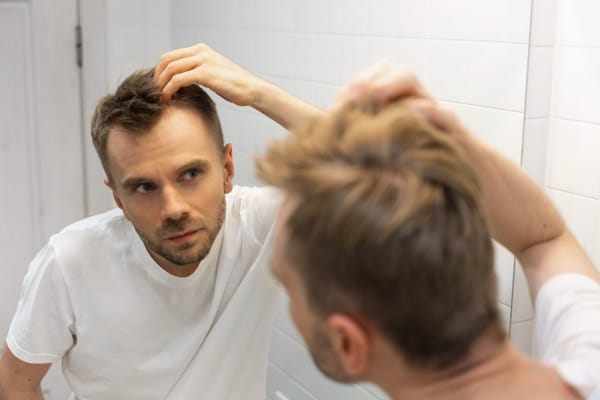
Hair is not merely strands of keratin; it’s a complex structure made up of various components, each serving a unique function. Amino acids, the building blocks of protein, form the core structure of hair. These amino acids are crucial for hair strength and elasticity. Melanin, the pigment responsible for the color of your hair, is another key component. Changes in melanin levels can indicate aging or stress-related issues. Lipids, or natural oils, coat the hair, providing it with luster and protection.
Understanding the role of each of these components can offer a deeper insight into your overall health. For instance, a lack of amino acids or lipids can lead to dry, brittle hair, which may be a sign of nutritional deficiencies. Similarly, sudden changes in hair color could be indicative of stress or hormonal imbalances. The hair follicle, the skin organ responsible for hair growth, also plays a significant role. A healthy follicle supports a healthy hair strand, while an inflamed or damaged follicle can lead to hair loss or thinning.
Dry And Brittle Hair: A Sign of Nutritional Deficiencies
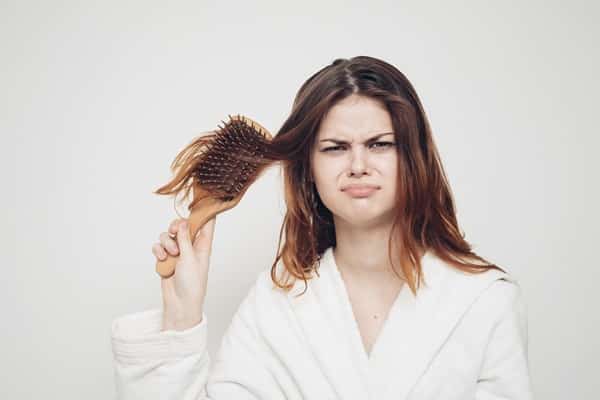
When your hair loses its natural sheen and becomes dry or brittle, it’s not just an aesthetic concern; it could be signaling a lack of essential nutrients. Omega-3 fatty acids, proteins, and vitamins like biotin are vital for maintaining healthy hair. A deficiency in any of these nutrients can lead to hair that is less resilient and more prone to breakage. Moreover, conditions like anorexia or extreme dieting can also manifest as poor hair health.
Addressing the issue involves more than just topical treatments; it requires a holistic approach. Incorporating a balanced diet rich in essential nutrients can go a long way in restoring hair health. For more targeted solutions, supplements like fish oil capsules for Omega-3s or biotin tablets for vitamin deficiencies can be beneficial. However, it’s always best to consult a healthcare provider for a tailored treatment plan.
Thinning Hair And What It Could Mean
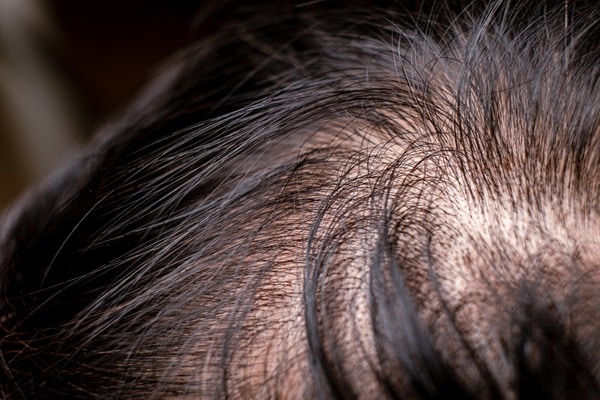
Thinning hair is often dismissed as a natural part of aging, but it could be indicative of underlying health issues. Hormonal imbalances, particularly in thyroid hormones or sex hormones like estrogen and testosterone, can lead to hair thinning. Stress is another significant factor; high levels of cortisol, the stress hormone, can disrupt the hair growth cycle, leading to hair loss.
If you notice your hair thinning, don’t jump to conclusions or self-diagnose. Various medical treatments can address the root cause of the issue. For hormonal imbalances, hormone replacement therapy can be effective. Lifestyle changes, such as incorporating stress management techniques like meditation or yoga, can also help. But remember, the first step in addressing thinning hair is to consult a healthcare provider for an accurate diagnosis and treatment plan.
Dandruff And Scalp Health
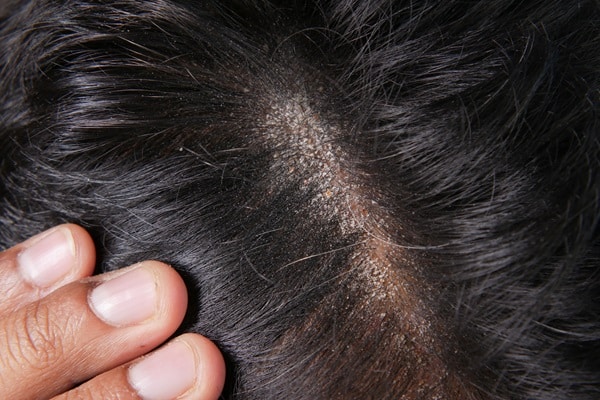
Dandruff isn’t just a cosmetic issue; it can be a sign of underlying scalp health problems. The white flakes you see could be due to a variety of factors, including fungal infections or seborrheic dermatitis, a condition that causes the skin to become oily and irritated. In some cases, dandruff may even be a symptom of an autoimmune disease like psoriasis. Therefore, it’s essential to not dismiss dandruff as merely an aesthetic concern.
When it comes to treating dandruff, there are several routes one can take. Over-the-counter anti-dandruff shampoos containing ingredients like ketoconazole or zinc pyrithione can be effective for mild cases. For more severe or persistent dandruff, consulting a healthcare provider for a targeted treatment plan is advised. Natural remedies like tea tree oil or apple cider vinegar can also offer relief but should be used cautiously and ideally under professional guidance.
The Color And Texture Of Your Hair

Changes in the color and texture of your hair can be more than just natural aging or styling damage; they can be indicators of health conditions. For instance, graying hair is often associated with aging, but a sudden increase in gray hairs can be a sign of elevated stress levels or even certain vitamin deficiencies. Similarly, hair that becomes coarse or changes texture could be signaling thyroid issues or other hormonal imbalances.
If you notice any sudden or drastic changes in your hair’s color or texture, it’s advisable to consult a healthcare provider. Blood tests can help identify any deficiencies or imbalances that may be affecting your hair. At-home remedies, such as oil treatments or natural masks, can offer temporary relief, but treating the underlying cause is crucial for long-term health.
Hair Loss Patterns: More Than Just Genetics
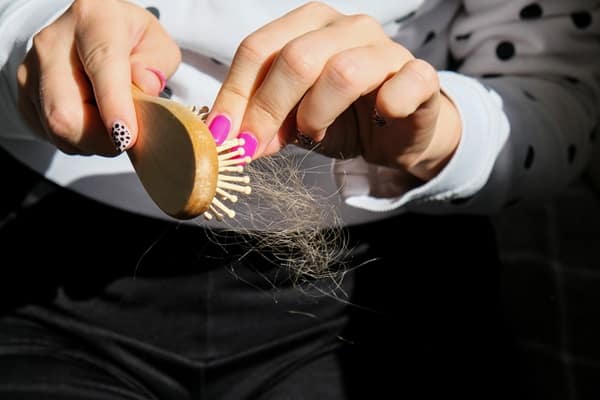
While genetics play a significant role in hair loss, patterns like alopecia areata or telogen effluvium can indicate more serious health issues. Alopecia areata, characterized by patchy hair loss, is often linked to autoimmune disorders. Telogen effluvium, a condition where hair falls out in handfuls, can occur after a significant physical or emotional shock, such as surgery or a death in the family.
Treatment options for these types of hair loss are varied and should be tailored to the individual. Medications like minoxidil can stimulate hair growth in cases of alopecia areata, while stress management techniques can help with telogen effluvium. However, it’s crucial to consult a healthcare provider for an accurate diagnosis and treatment plan tailored to your specific needs.
Unusual Hair Growth: What’s Going On?

Experiencing unusual hair growth, especially in areas where hair doesn’t commonly grow, can be disconcerting. This could be due to a variety of factors, including hormonal imbalances like polycystic ovary syndrome (PCOS) or side effects from medications such as corticosteroids. In some cases, excessive hair growth, known as hirsutism, can even be a sign of tumors or other severe medical conditions.
Managing unusual hair growth often involves treating the underlying cause. For hormonal imbalances like PCOS, medications such as birth control pills can help regulate hormone levels and reduce hair growth. Cosmetic procedures like laser hair removal can offer a more immediate solution but should be considered a secondary option to medical treatments. As always, consult a healthcare provider for a comprehensive diagnosis and treatment plan.
When To Consult A Professional

Recognizing changes in your hair is the first step, but knowing when to seek professional advice is equally important. If you notice persistent issues like excessive hair loss, drastic changes in texture or color, or unusual hair growth, it’s time to consult a healthcare provider. Dermatologists specialize in skin and hair issues, while trichologists focus specifically on scalp and hair health. General physicians can also provide initial guidance and referrals to specialists.
Early diagnosis and treatment are crucial for effectively managing any health issues that your hair might be signaling. Waiting too long can not only exacerbate the hair problem but also allow the underlying health issue to progress. Therefore, if you notice any persistent or severe changes in your hair, make it a point to consult a healthcare provider for a comprehensive diagnosis and a tailored treatment plan.
Take Control Of Your Hair And Health
Your hair serves as a unique window into your overall health, offering clues that you shouldn’t ignore. From nutritional deficiencies to hormonal imbalances, your hair can signal a range of health issues that may require attention. So, don’t just brush off those changes in texture, color, or growth. Take proactive steps to understand what your hair is trying to tell you, and consult a healthcare provider for a comprehensive evaluation. Your hair’s health is an integral part of your overall well-being, and it’s time to give it the attention it deserves.


